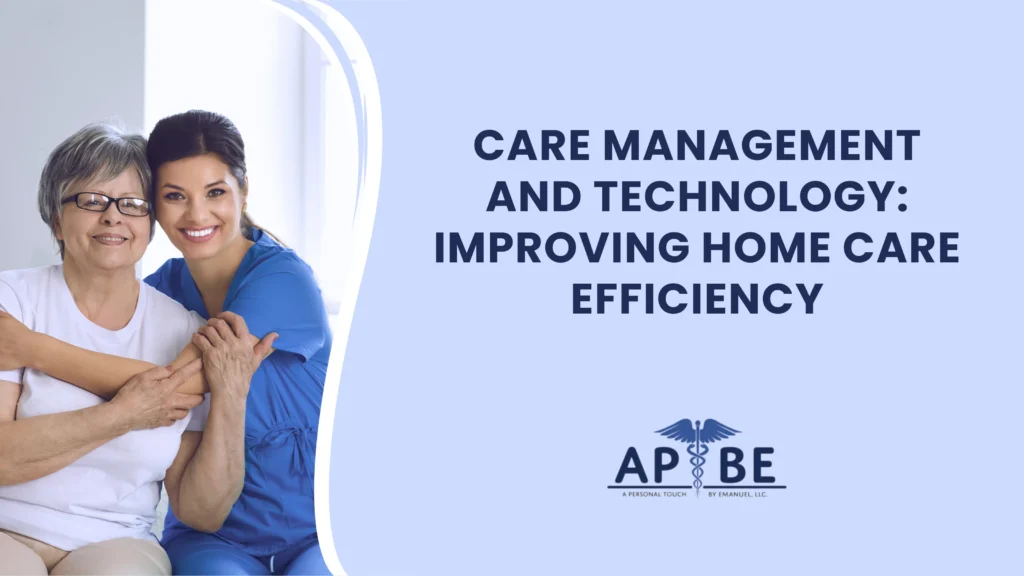
Care management is a critical component of successful home care services, and integrating technology can significantly enhance its efficiency and effectiveness. This blog discusses how technology can improve care management in home care, highlighting key benefits and modern practices.
Defining Care Management
Care management involves planning, coordinating, and managing patient care. It ensures that all aspects of a patient’s health are addressed through a coordinated approach, involving various healthcare providers.
The Role of Technology
Technology plays a crucial role in enhancing care management by providing tools for better coordination, communication, and monitoring. This integration leads to more efficient and effective home care services. For more information, visit our Care Management page.
Improved Coordination
Technology improves coordination among care teams by providing centralized access to patient information. Electronic Health Records (EHR) enable seamless sharing of patient data, ensuring that all providers are on the same page.
Enhanced Monitoring
Advanced monitoring tools, such as remote patient monitoring (RPM) devices, allow for continuous tracking of patients’ health. These tools enable timely interventions and reduce the need for frequent in-person visits.
Efficiency in Care Delivery
Technology streamlines care delivery by automating routine tasks and reducing administrative burdens. This efficiency allows caregivers to focus more on providing direct patient care.
Telehealth Services
Telehealth services enable remote consultations and monitoring, enhancing access to care. Patients can receive medical advice and support from the comfort of their homes, reducing the need for travel.
Electronic Health Records (EHR)
EHR systems provide a centralized platform for storing and sharing patient information. This technology enhances coordination among care teams and ensures that all providers have access to up-to-date patient data.
Data Analytics
Data analytics tools help care managers analyze patient data to identify trends and make informed decisions. These insights enable better care planning and improved patient outcomes. For more details, visit our Care Management page.
Personalized Care Plans
Technology allows for the creation of personalized care plans tailored to each patient’s needs. These plans ensure that patients receive the most effective and appropriate care.
Regular Monitoring and Adjustments
Continuous monitoring tools enable regular assessments of patients’ health, allowing for timely adjustments to care plans. This proactive approach helps manage chronic conditions and prevent complications.
Collaborative Care Models
Collaborative care models involve close coordination between various healthcare providers, facilitated by technology. This approach ensures comprehensive care and better health outcomes for patients.
Case Study: Managing Chronic Conditions
Consider a patient with multiple chronic conditions. Integrating technology into care management allows for continuous monitoring, personalized care plans, and regular virtual consultations. This comprehensive approach improves the patient’s health outcomes and quality of life.
Supporting Elderly Patients
For elderly patients, technology enhances care management by providing tools for remote monitoring, medication reminders, and emergency alerts. These tools help ensure their safety and well-being at home.
Integrating technology into care management significantly enhances the efficiency and effectiveness of home care services. By improving coordination, enhancing monitoring, and streamlining care delivery, technology ensures that patients receive high-quality, personalized care.
To learn more about how technology can improve care management for you or your loved ones, visit our Care Management page.
For additional information and reviews, check our Google Business Profile.